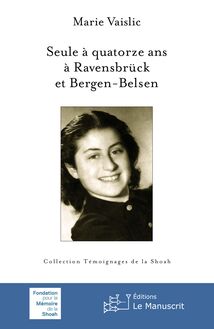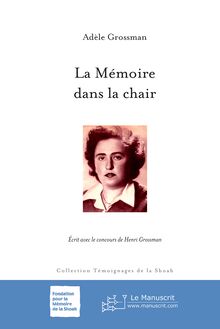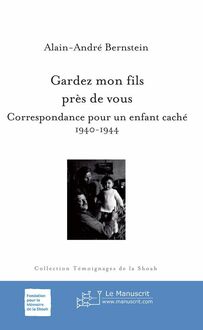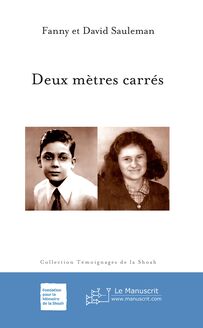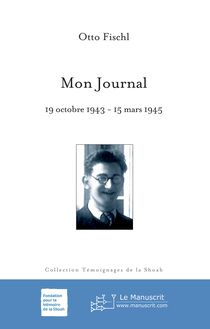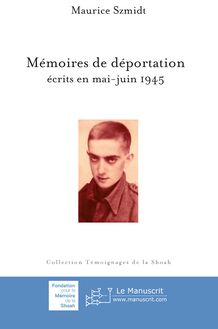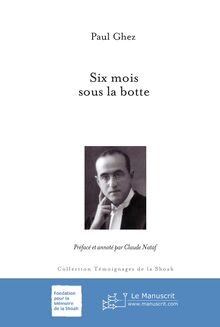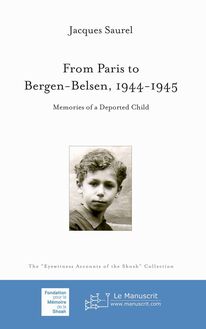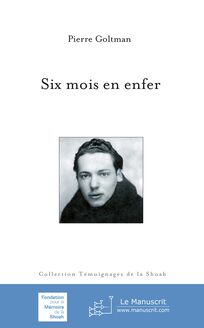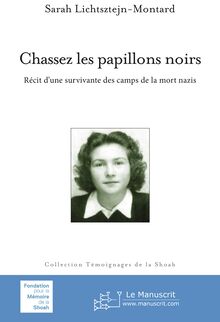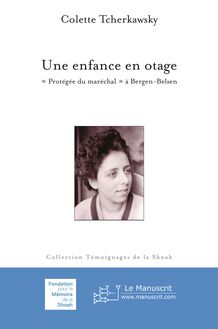-
 Univers
Univers
-
 Ebooks
Ebooks
-
 Livres audio
Livres audio
-
 Presse
Presse
-
 Podcasts
Podcasts
-
 BD
BD
-
 Documents
Documents
-
- Cours
- Révisions
- Ressources pédagogiques
- Sciences de l’éducation
- Manuels scolaires
- Langues
- Travaux de classe
- Annales de BEP
- Etudes supérieures
- Maternelle et primaire
- Fiches de lecture
- Orientation scolaire
- Méthodologie
- Corrigés de devoir
- Annales d’examens et concours
- Annales du bac
- Annales du brevet
- Rapports de stage
La lecture à portée de main
Vous pourrez modifier la taille du texte de cet ouvrage
Découvre YouScribe en t'inscrivant gratuitement
Je m'inscrisDécouvre YouScribe en t'inscrivant gratuitement
Je m'inscrisEn savoir plus
Vous pourrez modifier la taille du texte de cet ouvrage
En savoir plus

Description
Sujets
Informations
| Publié par | Éditions Le Manuscrit |
| Date de parution | 01 janvier 2020 |
| Nombre de lectures | 0 |
| EAN13 | 9782304042535 |
| Langue | English |
| Poids de l'ouvrage | 1 Mo |
Informations légales : prix de location à la page 0,0250€. Cette information est donnée uniquement à titre indicatif conformément à la législation en vigueur.
Extrait
Odette Spingarn
My Leap to Freedom Fragments
Translation from the French: Glenn Naumovitz
the “eyewitness accounts of the shoah” collection
Le Manuscrit
ISBN: 9782304042535
Odette Spingarn
© 2019 Le Manuscrit
“Eyewitness Accounts of the Shoah” a series published for the Fondation pour la Mémoire de la Shoah, Paris (Foundation for the Memory of the Shoah)
With its “Eyewitness Accounts of the Shoah” published in association with Editions Le Manuscrit using the latest communication technology, the Foundation seeks to preserve for a wide readership the memory of victims and witnesses of the dark years of anti-Semitic persecution from 1933 to 1945.
In addition to the many works already published else-where, the Foundation hopes in this way to present the stories of those men and women whose voices have remained unheard until now: reminiscences often buried deep inside individual or family memories, stories sometimes written down but never published, accounts that were published at the time of leaving the hell of the camps, only to remain for too long hidden away on library shelves.
If one person alone cannot describe the unspeakable, this multiplicity of accounts may at least get close.
At any rate, that is the aim this collection has set itself with the moral and historical support of the Foundation, thanks to its editorial board of scholars and eyewitnesses.
Confronted with the manner in which present-day con-flicts may be exploited to obscure, distort and trivialize the reality of the Shoah, this collection will enable readers, re-searchers and students to gauge the specific nature of persecution in its most extreme form - a persecution in which some were actors, others accomplices, and to which some people remained indifferent while others were truly heroic.
It is our wish that these works may encourage a spirit of fraternity in moving readers to counter anti-Semitism and all other forms of exclusion.
Visit the Internet site of the Foundation of the Memory of the Shoah: www.fondationshoah.org
Editorial Board for the collection (2013)
Serge Klarsfeld, president
Henri Borlant, deportation survivor
Isabelle Choko, deportation survivor
Olivier Coquard, historian
Katy Hazan (OSE), historian
Dominique Missika, historian
Denis Peschanski, historian
Paul Schaffer, deportation survivor
Annette Zaidman, hidden child
Philippe Weyl, head of the collection
For other titles in the collection.
Biography of Odette Spingarn
1925 14 February: Odette is born in Le Vésinet, near Paris (Seine-et-Oise, today Yvelines). She has one sister, Alice, who is 10 years older. Her parents, Henry and Germaine, were married in Paris on 28 August 1912. Her mother’s maiden name was Créange.
1927 The Spingarns move from Le Vésinet to 20 bis rue La Boétie in the eighth arrondisse-ment of Paris.
Her father runs Ye Olde Curiosity Shop , an antique store at 350 rue Saint-Honoré popular with wealthy Americans. Business is so good he opens up branches in Nice and Aix-les-Bains.
1929 24 October: the New York Stock Market crashes.
The Great Depression, which Odette hears about throughout her childhood, severely hurts Henry’s business: Americans stop coming to Paris. He must close the shops in Nice and Aix-les-Bains and struggles to keep the one in Paris open.
Once a week Odette, in frail health throughout early childhood, attends the Cours Hattemer, a private, secular school with innovative teaching methods. The other days she studies at home.
1936 2 February: Alice marries Gérard Lehmann and continues pharmacy school while her husband, a graduate of the École centrale engineering school, gets a job as an engineer.
Odette enrolls in another private school, La Bruyère, which she attends for three years.
1937 12 September: Roger, Alice and Gérard’s first child, is born.
1939 23 August: signature of the German-Soviet non-aggression pact.
3 September: France and the United Kingdom declare war on Germany two days after the Nazis invade Poland: the Second World War breaks out.
24 August: Jean-Claude, Alice and Gérard’s second child, is born.
When war breaks out the whole family, including maternal grandparents “Bon Papa” and “Bonne Maman” Créange, Suzanne and Maurice Litvac, Raymond and Simone Créange and their daughter Jacqueline, is vacationing in Deauville. They decide to keep the holiday villa and rent it until the end of the year.
Odette’s parents return to Paris but, fearing the French capital will be bombed, leave her in Deauville with the rest of the family.
Parisians have been issued gas masks and must carry them outside at all times. They must also put tape on windows to limit the risk of injury in case of flying glass.
Odette, very sad about being separated from her parents, begins her first year of high school at a private institution in Trouville-sur-Mer (Calvados). She also joins a Girl Scout troop founded by a leader with a group of refugee girls.
1940 10 May: the “phony war” ends, the blitzkrieg begins. Germany launches a surprise attack on Belgium, the Netherlands and Luxembourg in order to skirt around the Maginot Line and invade France.
Early May: as the Germans push forward, an uncle, Maurice Litvac, who owns a Renault dealership, has a car and driver take Alice, who is pregnant, her two babies, Odette and Germaine beyond their reach to Brive-la-Gaillarde (Corrèze) in southwest France a few days before the actual exodus begins.
The Spingarns, spotting a classified ad in the newspaper Le Temps , rent the old Eyrignac manor in Salignac-Eyvigues (Dordogne), where several members of the Lehmann family and, later, Gérard, who has been demobilized, soon join them. Eventually, 20 people take refuge in the rundown, comfortless house (there is no electricity or running water). This gives them time to “digest” France’s stunning defeat and all the perils it implies.
22 June: France and Germany sign the armistice at Rethondes. Nazi armies occupy three-fifths of the country.
10 July: in Vichy, the National Assembly (deputies and senators together) vote to grant Marshal Pétain full powers. The Vichy regime supplants the Third Republic. Pétain launches the reactionary, xenophobic, anti-Semitic and anti-communist “National Revolution”.
30 July: the demarcation line divides the so-called “free zone” ruled by Vichy from the German-occupied zone in the north and west.
September: the family scatters. Odette, her parents, Alice and her children go to Brive, where Alice stays until giving birth to a baby girl, Monique, on 3 November. Then she joins her husband and his family in Caluire (Rhône). Gérard finds a job in Lyon.
As soon as Odette arrives in Brive she joins the Éclaireurs israélites de France (Jewish Scouts of France, or EIF), who have formed a large local group of young refugees from Strasbourg and Paris. Scouting plays a primordial part in her life.
3 and 4 October: the Vichy government publishes anti-Jewish laws and the first “Jewish statute”.
October: In Brive, Odette starts her second year of high school.
1941 2 June: second Jewish statute. Census of Jews in the unoccupied zone.
8 December: the United States enters the war the day after Japan’s surprise attack on Pearl Harbor.
1942 Summer: the Spingarns, realizing that Brive is too dangerous due to the rising number of round-ups of Jews, move to Larche (Corrèze), a small town of 600 on the border with Dordogne six miles away.
11 November: three days after the Allied landing in North Africa, the Germans invade the unoccupied zone except for eight departments in the southeast, which come under Italian control.
1943 2 February: in the Nazis’ first major military defeat, the General Friedrich Paulus surrenders at Stalingrad.
9 September: German armies take over the Italian occupied zone in France after the Allied armistice with Italy.
1944 31 March: soldiers from the Brehmer division arrest the Spingarns during a sweeping operation against the French Resistance in Périgord.
1 April: Henry and two other Jewish men are shot in Saint-Pantaléon-de-Larche. Odette and her mother are taken to Périgueux, where they spend three days in the barracks’ stables requisitioned by the Germans.
5 April: they are brought to Paris by train.
6 April: Odette and her mother are interned in the Drancy transit camp (Seine-Saint-Denis).
13 April: Odette and her mother are deported to the Auschwitz II-Birkenau extermination camp on transport 71 . Arriving a fter three days and three nights, they are stripped of all their belongings, tattooed and quarantined for around 10 days.
24 May: Odette’s mother dies in the Revier (infirmary).
July: Odette is transferred to an annex of Kanada , where the chances of surviving are better.
Early October: Odette and 500 other inmates are put on a train that takes them on a two-day, two-night journey to Zschopau (Saxony), 10 miles south of Chemnitz in eastern Germany. They work at the Auto-Union factory, which makes aircraft engine spare parts, and sleep on the floor above the machine room.
1945 14 April: Odette, the 500 women in her Kommando and 300 others who had arrived the day before are crammed into cattle cars bound for a destination
-
 Univers
Univers
-
 Ebooks
Ebooks
-
 Livres audio
Livres audio
-
 Presse
Presse
-
 Podcasts
Podcasts
-
 BD
BD
-
 Documents
Documents
-
Jeunesse
-
Littérature
-
Ressources professionnelles
-
Santé et bien-être
-
Savoirs
-
Education
-
Loisirs et hobbies
-
Art, musique et cinéma
-
Actualité et débat de société
-
Jeunesse
-
Littérature
-
Ressources professionnelles
-
Santé et bien-être
-
Savoirs
-
Education
-
Loisirs et hobbies
-
Art, musique et cinéma
-
Actualité et débat de société
-
Actualités
-
Lifestyle
-
Presse jeunesse
-
Presse professionnelle
-
Pratique
-
Presse sportive
-
Presse internationale
-
Culture & Médias
-
Action et Aventures
-
Science-fiction et Fantasy
-
Société
-
Jeunesse
-
Littérature
-
Ressources professionnelles
-
Santé et bien-être
-
Savoirs
-
Education
-
Loisirs et hobbies
-
Art, musique et cinéma
-
Actualité et débat de société
- Cours
- Révisions
- Ressources pédagogiques
- Sciences de l’éducation
- Manuels scolaires
- Langues
- Travaux de classe
- Annales de BEP
- Etudes supérieures
- Maternelle et primaire
- Fiches de lecture
- Orientation scolaire
- Méthodologie
- Corrigés de devoir
- Annales d’examens et concours
- Annales du bac
- Annales du brevet
- Rapports de stage
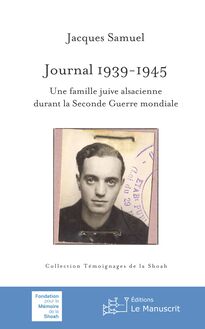
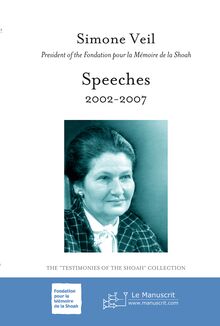
![[En]quête de famille](https://img.uscri.be/pth/2d18ccf0814431f0b2cebbf9d26faf0e9ab5ea36)
